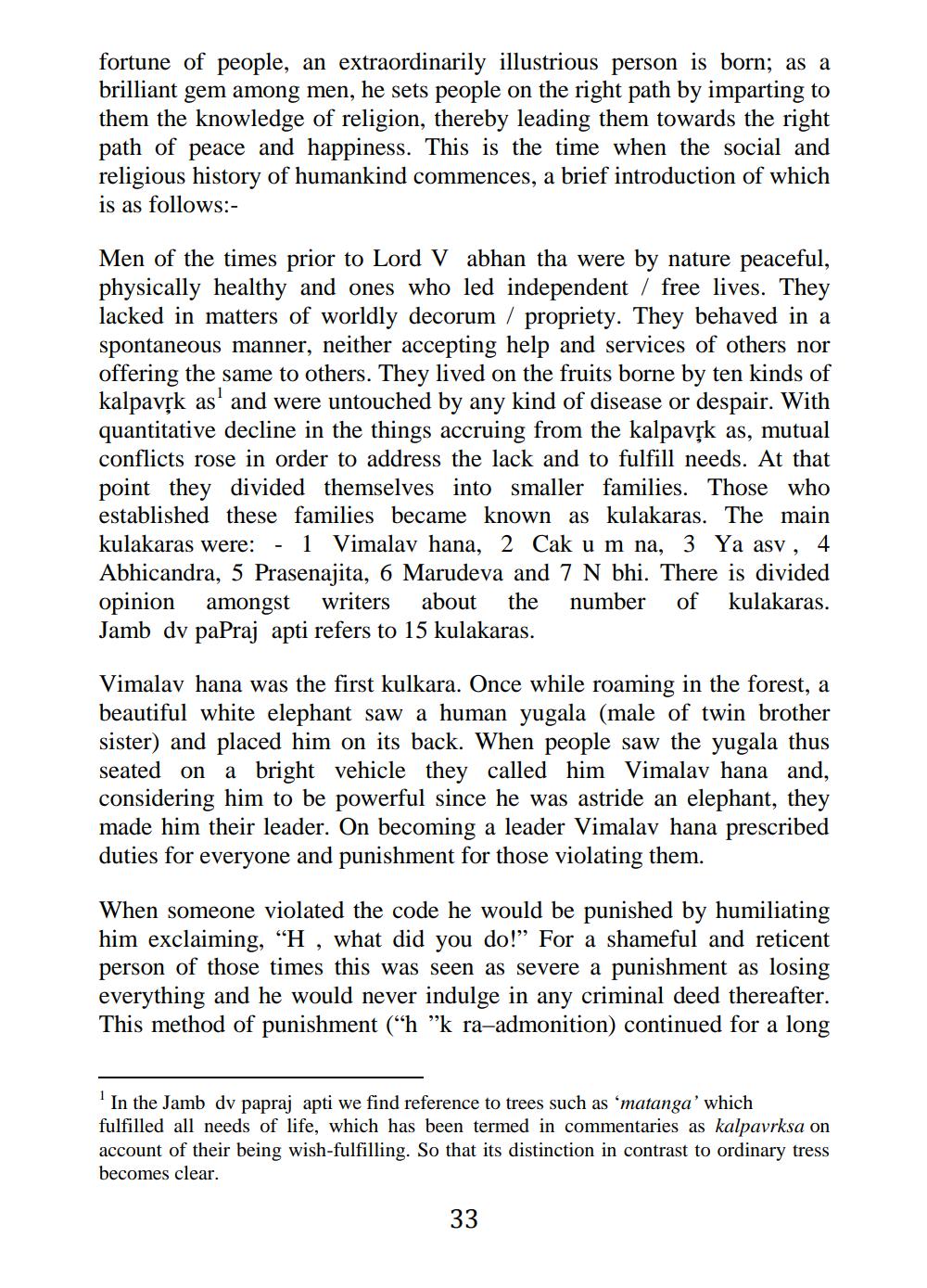________________
fortune of people, an extraordinarily illustrious person is born; as a brilliant gem among men, he sets people on the right path by imparting to them the knowledge of religion, thereby leading them towards the right path of peace and happiness. This is the time when the social and religious history of humankind commences, a brief introduction of which is as follows:
Men of the times prior to Lord V abhan tha were by nature peaceful, physically healthy and ones who led independent / free lives. They lacked in matters of worldly decorum / propriety. They behaved in a spontaneous manner, neither accepting help and services of others nor offering the same to others. They lived on the fruits borne by ten kinds of kalpavěk as and were untouched by any kind of disease or despair. With quantitative decline in the things accruing from the kalpavşk as, mutual conflicts rose in order to address the lack and to fulfill needs. At that point they divided themselves into smaller families. Those who established these families became known as kulakaras. The main kulakaras were: - 1 Vimalav hana, 2 Cak u m na, 3 Ya asv , 4 Abhicandra, 5 Prasenajita, 6 Marudeva and 7 N bhi. There is divided opinion amongst writers about the number of kulakaras. Jamb dy paPraj apti refers to 15 kulakaras.
Vimalav hana was the first kulkara. Once while roaming in the forest, a beautiful white elephant saw a human yugala (male of twin brother sister) and placed him on its back. When people saw the yugala thus seated on a bright vehicle they called him Vimalav hana and, considering him to be powerful since he was astride an elephant, they made him their leader. On becoming a leader Vimalay hana prescribed duties for everyone and punishment for those violating them.
When someone violated the code he would be punished by humiliating him exclaiming, “H , what did you do!” For a shameful and reticent person of those times this was seen as severe a punishment as losing everything and he would never indulge in any criminal deed thereafter. This method of punishment (“h ”k ra-admonition) continued for a long
In the Jamb dy papraj apti we find reference to trees such as 'matanga' which fulfilled all needs of life, which has been termed in commentaries as kalpavrksa on account of their being wish-fulfilling. So that its distinction in contrast to ordinary tress becomes clear.
33




